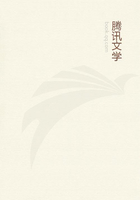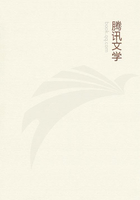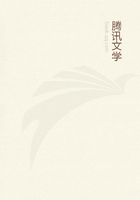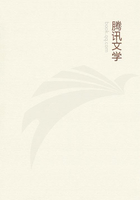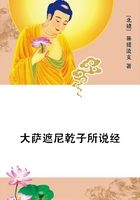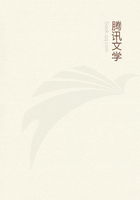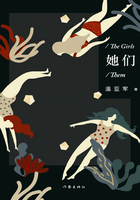It cannot but be recognized that such views of the state of man after death partly presuppose and partly promote the dissolution of the most essential dogmas of Christianity.The notion of sin and of salvation must have almost entirely evaporated.We must not be misled by the effects of the great preachers of repentance or by the epidemic revivals which have been described above.For even granting that the individually developed classes had shared in them like the rest, the cause of their participation was rather the need of emotional excitement, the rebound of passionate natures, the horror felt at great national calamities, the cry to heaven for help.The awakening of the conscience had by no means necessarily the sense of sin and the felt need of salvation as its consequence and even a very severe outward penance did not perforce involve any repentance in the Christian meaning of the word.When the powerful natures of the Renaissance tell us that their principle is to repent of nothing, they may have in their minds only matters that are morally indifferent, faults of unreason or imprudence; but in the nature of the case this contempt for repentance must extend to the sphere of morals, because its origin, namely the consciousness of individual force, is common to both sides of human nature.The passive and contemplative form of Christianity, with its constant reference to a higher world beyond the grave, could no longer control these men.Machiavelli ventured still further, and maintained that it could not be serviceable to the State and to the maintenance of public freedom.
The form assumed by the strong religious instinct which, notwithstanding all, survived in many natures, was Theism or Deism, as we may please to call it.The latter name may be applied to that mode of thought which simply wiped away the Christian element out of religion, without either seeking or finding any other substitute for the feelings to rest upon.Theism may be considered that definite heightened devotion to the one Supreme Being which the Middle Ages were not acquainted with.This mode of faith does not exclude Christianity, and can either ally itself with the Christian doctrines of sin, redemption, and immortality, or else exist and flour;sh without them.
Sometimes this belief presents itself with childish_naivete and even with a half-pagan air, God appearing as the almighty fulfiller of human wishes.Agnolo Pandolfini tells us how, after his wedding, he shut himself in with his wife, and knelt down before the family altar with the picture of the Madonna, and prayed, not to her, but to God, that He would vouchsafe to them the right use of their property, a long life in joy and unity with one another, and many male descendants: 'For myself I prayed for wealth, honour, and friends; for her blamelessness, honesty, and that she might be a good housekeeper.' When the language used has a strong antique flavor, it is not always easy to keep apart the pagan style and the theistic belief.
This temper sometimes manifests itself in times of misfortune with a striking sincerity.Some addresses to God are left us from the latter period of Firenzuola, when for years he lay ill of fever, in which, though he expressly declares himself a believing Christian, he shows that his religious consciousness is essentially theistic.Hie sufferings seem to him neither as the punishment of sin, nor as preparation for a higher world; they are an affair between him and God only, who has put the strong love of life between man and his despair.
'I curse, but only curse Nature, since Thy greatness forbids me to utter Thy name....Give me death, Lord, I beseech Thee, give it me now!'
In these utterances and the like, it would be vain to look for a conscious and consistent Theism; the speakers partly believed themselves to be still Christians, and for various other reasons respected the existing doctrines of the Church.But at the time of the Reformation, when men were driven to come to a distinct conclusion on such points, this mode of thought was accepted with a fuller consciousness; a number of the Italian Protestants came forward as Anti-Trinitarians and Socinians, and even as exiles in distant countries made the memorable attempt to found a church on these principles.From the foregoing exposition it will be clear that, apart from humanistic rationalism, other spirits were at work in this field.
One chief centre of theistic modes of thought lay in the Platonic Academy at Florence, and especially in Lorenzo il Magnifico himself.
The theoretical works and even the letters of these men show us only half their nature.It is true that Lorenzo, from his youth till he died, expressed himself dogmatically as a Christian, and that Pico was drawn by Savonarola's influence to accept the point of view of a monkish ascetic.But in the hymns of Lorenzo, which we are tempted to regard as the highest product of the spirit of this school, an unreserved Theism is set forth a Theism which strives to treat the world as a great moral and physical Cosmos.
While the men of the Middle Ages look on the world as a vale of tears, which Pope and Emperor are set to guard against the coming of Antichrist; while the fatalists of the Renaissance oscillate between seasons of overflowing energy and seasons of superstition or of stupid resignation) here, in this circle of chosen spirits, the doctrine is upheld that the visible world was created by God in love, that it is the copy of a pattern pre-existing in Him, and that He will ever remain its eternal mover and restorer.The soul of man can by recognizing God draw Him into its narrow boundaries, but also by love of Him expand itself into the Infinite--and this is blessedness on earth.
Echoes of medieval mysticism here flow into one current with Platonic doctrines and with a characteristically modern spirit.One of the most precious fruits of the knowledge of the world and of man here comes to maturity, on whose account alone the Italian Renaissance must be called the leader of modern ages.
End

